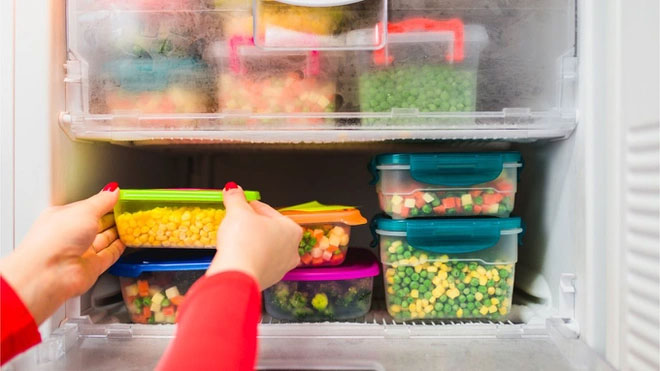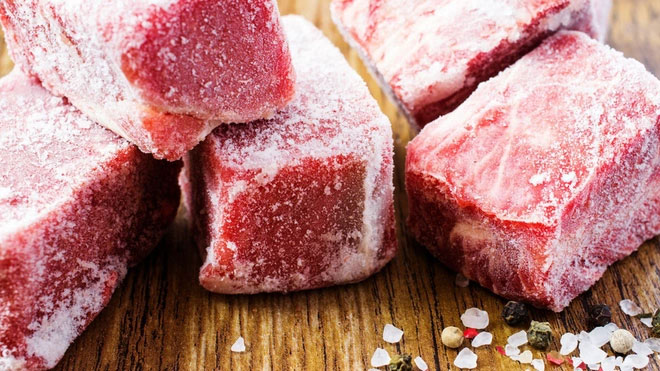According to Dr. Duong Thi Kim Loan, the storage time for fresh meat and fish should not exceed 24 hours to ensure freshness.
Buying large quantities of fresh food, including meat and fish, to store in the refrigerator for later use is a common habit among many families. However, experts warn that if food is not stored at the appropriate temperature and duration, bacteria can easily proliferate even in cold environments.
Avoid Storing Meat and Fish Too Long in the Refrigerator
Dr. Duong Thi Kim Loan, Head of the Clinical Nutrition Department at Thong Nhat Hospital in Ho Chi Minh City, states that the refrigerator’s cooling compartment is a convenient place for short-term food storage. Foods that can be easily stored in this section include vegetables, fruits, and some types of fresh meat and seafood.
“The ideal storage time for fresh meat and fish in the refrigerator is usually 8 hours or a maximum of one day. Fresh food should not be kept in the refrigerator from one day to the next,” Dr. Loan advises.

Proper storage will help keep food fresh longer. (Photo: Safefood).
If stored in the refrigerator for more than 2 days, you may notice that the meat and fish begin to turn slightly gray and become drier due to moisture loss. Additionally, when storing fresh food, it is important to wrap it well to prevent any unpleasant odors from affecting other foods.
This expert indicates that fresh food that is not frozen will quickly lose moisture and gradually lose its freshness. More importantly, when meat and fish are kept in the refrigerator for too long, bacteria can proliferate, causing odors, nutrient loss, and harmful changes to the food that can affect health.
“There are many harmful bacteria that can develop if food is stored for too long, with Staphylococcus aureus being the most dangerous, followed by dysentery and E. coli,” Dr. Loan stated.
Avoid Refreezing Thawed Food
Regarding the storage of fresh food in the freezer, Dr. Duong Thi Kim Loan points out that a common mistake many people make is refreezing meat and fish that have already been thawed.
“Thawing and refreezing food involves many issues because improper handling can lead to food denaturation, bacterial growth, and health hazards,” Dr. Loan warns.

Experts recommend freezing fresh food according to needs, without storing it for too long. (Photo: Huffpost).
Experts suggest that the best solution is to divide food into small portions suitable for one-time use.
The ideal temperature for storing fresh food in the freezer is between -17°C and -18°C. At this temperature, the protein content in the food will not be lost.
Dr. Loan also mentioned that there is currently no consensus on the storage duration of meat and fish when frozen. However, people should only freeze according to their family’s needs.
“For example, if you determine that there will be no fresh meat available for the next month, then you should stock up accordingly. Although studies show that the nutritional content in frozen food does not diminish, the flavor of the meat will decrease over time,” Dr. Loan explained.
Nutrition engineer Vo Thi Thuy Linh from the Nutrition and Dietetics Department at Children’s Hospital in Ho Chi Minh City also advises that when storing in the freezer, we need to clean fresh meat and fish before tightly wrapping them in multiple layers to prevent outside air from entering.
This is to avoid excessive ice buildup on the surface, ensuring that the food does not freeze too hard, lose moisture, or change color and flavor. When thawing, we should only use the necessary amount.


















































